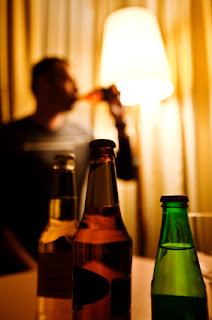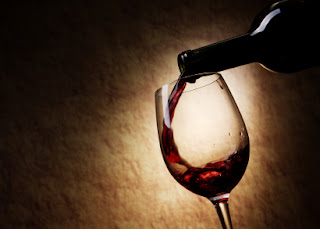 Alcohol is by most measures the most widely consumed drug in the world. Most people who drink alcohol do so in order to experience a mild sense of relaxation, while others use alcohol as a way to cut loose and get into a better mood at a party or in similar settings. Both of these effects have to do with the fact that alcohol is a depressant. One of the functions of alcohol is to suppress certain areas of the brain that have to do with the ability to take in visual messages and other types of sensory perception. Simply put, the person’s consciousness is partially cut off from the outside world, since the messages coming from the various senses are not as clear nor as immediate. Consequently, the person’s motor skills become impaired. Motor control depends on having clear and accurate information about what is going on in the immediate environment. Alcohol gets in the way of this relay of information, leading to a situation in which the person is not able to react as quickly to an emergency and is less able to respond in the way that is called for by the situation. The motor control system is only as good as the information it receives. While some people may enjoy this impaired or out-of-control sensation, it is highly dangerous. For example, the National Highway Traffic Safety Institute reports that drunk driving accidents kill 27 people every day, a figure that adds up to nearly 10,000 every year.
Alcohol is by most measures the most widely consumed drug in the world. Most people who drink alcohol do so in order to experience a mild sense of relaxation, while others use alcohol as a way to cut loose and get into a better mood at a party or in similar settings. Both of these effects have to do with the fact that alcohol is a depressant. One of the functions of alcohol is to suppress certain areas of the brain that have to do with the ability to take in visual messages and other types of sensory perception. Simply put, the person’s consciousness is partially cut off from the outside world, since the messages coming from the various senses are not as clear nor as immediate. Consequently, the person’s motor skills become impaired. Motor control depends on having clear and accurate information about what is going on in the immediate environment. Alcohol gets in the way of this relay of information, leading to a situation in which the person is not able to react as quickly to an emergency and is less able to respond in the way that is called for by the situation. The motor control system is only as good as the information it receives. While some people may enjoy this impaired or out-of-control sensation, it is highly dangerous. For example, the National Highway Traffic Safety Institute reports that drunk driving accidents kill 27 people every day, a figure that adds up to nearly 10,000 every year.How quickly does drinking impair motor skills?
Public advocacy organization Mothers Against Drunk Driving (MADD) has assembled an informative chart based on information gathered from a variety of sources including the National Highway Traffic Safety Administration, the National Institute on Alcohol Abuse and Alcoholism, the American Medical Association, the National Commission Against Drunk Driving, and www.webMD.com. The purpose of this chart is to provide readers with an idea of the ways in which the motor controls of a person who is drinking will be impeded as his or her blood alcohol concentration (BAC) increases. A person’s BAC depends on several factors, including weight and gender, the percentage of alcohol content of the drink consumed, the volume of alcohol consumed and the amount of time spent drinking. As an example, a 170-pound man who drinks 2 beers over the course of an hour will probably have a BAC of just under .05 percent.- At .02 percent the person will experience relaxation and a decline in the visual functions involved in tracking moving objects
- At .05 percent the person loses some degree of the small muscle control involved in focusing the eyes, along with a reduced ability to track moving objects and respond to an emergency situation
- At .08 percent the person will suffer from poor muscle coordination, with impairment or disruption of balance, speech, vision, reaction time, and hearing
- At .10 percent there will be a clear deterioration of reaction time and control, along with slurred speech and poor physical coordination
- At .15 percent the person will possess far less muscle control than he or she normally does, along with a major loss of balance and substantial overall impairment
Source: http://www.madd.org/drunk-driving/about/understanding-08.html









